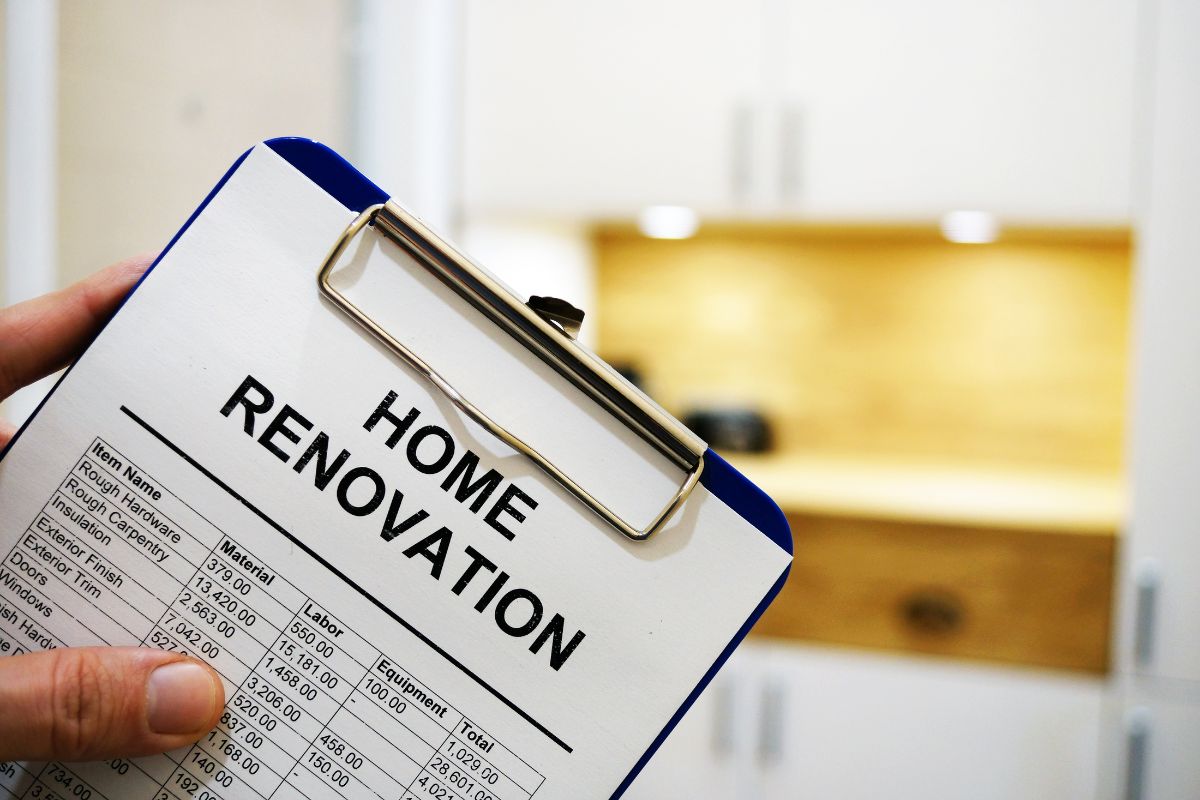The arrival of the spring season brings people the desire to renovate their homes. Illinois homeowners start numerous home renovation projects during the spring season when days become longer and temperatures warm up. Before beginning any home renovation project in Illinois you must understand the legal framework that controls these activities because skipping this step leads to significant consequences.
The failure to obtain permits, zoning law violations, and working with unlicensed contractors will result in expensive penalties combined with project delays as well as legal conflicts. As lawyers at 23 Legal we have witnessed numerous homeowners learn their lesson the hard way through improper home renovation practices.
This guide provides essential information about Illinois home renovation laws through the Illinois Home Repair and Remodeling Act along with explanations of why working with real estate lawyer Ben Weaver ensures a smooth project. Let’s get started!
Legal Basics of Home Renovations: What Every Homeowner Must Know
Renovating your home requires more than selecting paint shades and countertops because it demands obedience to the existing local regulations. Here’s what you need to know:
1. Building Codes
Building codes are regulations that ensure renovations meet safety, structural, and energy efficiency standards. Each place in Illinois has its own set of building codes which differ between cities and counties. For example:
- Structural Changes: Removing a load-bearing wall requires a permit and approval from a licensed engineer in cities like Chicago or Naperville.
- Electrical Work: Upgrading your home’s wiring must comply with the National Electrical Code (adopted by Illinois) to prevent fire hazards.
- Plumbing Updates: Installing new pipes or water heaters often requires inspections to prevent leaks or contamination.
Why It Matters: Ignoring building codes can result in failed inspections, fines, or even having to tear down unapproved work.
2. Zoning Laws
Zoning laws dictate how you can use your property. For instance:
- Setbacks: In suburban areas like Arlington Heights or Schaumburg, you may need to keep additions a certain distance from property lines.
- Height Restrictions: Building a second story? Check local height limits to avoid disputes with neighbors.
- Historical Districts: Homes in designated historic areas (e.g., Oak Park) often face strict renovation rules to preserve architectural integrity.
Why It Matters: Violating zoning laws can lead to lawsuits, stop-work orders, or costly modifications.
3. Contractor Licensing
The state of Illinois demands professional licenses from contractors who perform plumbing work, conduct electrical installations, or HVAC system installations. Before hiring a contractor, check their credentials at the Illinois Department of Financial and Professional Regulation (IDFPR).
Why It Matters: Hiring unlicensed contractors voids warranties, risks shoddy work, and leaves you liable for accidents.
The Illinois Home Repair and Remodeling Act: Your Protection Against Shady Contractors
The Illinois Home Repair and Remodeling Act (HRRA) is a critical law designed to protect homeowners. Here’s how it affects your project:
- Written Contracts Required: For projects costing over $1,000, contractors must provide a written contract detailing the work scope, materials, costs, and timeline.
- Right to Cancel: Homeowners have 3 business days to cancel a contract without penalty.
- Consumer Rights Notice: Contractors must give you a state-mandated brochure explaining your rights under the HRRA.
Example: If a contractor starts a $15,000 bathroom remodel without a written contract, they’re violating the HRRA—and you can take legal action.
When Do You Need a Permit for Your Illinois Renovation?
Not all renovations require permits, but many do. Here’s a breakdown of common projects:
Projects Requiring Permits
- Structural Changes: Removing walls, adding rooms, or altering rooflines.
- Electrical Updates: Installing new circuits, outlets, or panels.
- Plumbing Work: Relocating pipes or adding fixtures.
- HVAC Systems: Installing new heating or cooling units.
- Decks and Fences: Structures over 30 inches high typically need permits.
Example: In Chicago, building a deck attached to your home always requires a permit, while freestanding decks may not if they’re under 2 feet tall.
Projects That Usually Don’t Require Permits
- Painting interiors
- Installing flooring or carpet
- Replacing cabinets (without altering plumbing/electrical)
Why Permits Matter: Skipping permits can lead to:
- Fines of up to $10,000 in some Illinois municipalities.
- Difficulty selling your home (buyers may demand permits retroactively).
- Insurance denials if unpermitted work causes damage.
For a deeper dive, check out our guide: Obtaining Permits for Home Remodels in Illinois.
Consulting with a Real Estate Lawyer
Even small renovations can have big legal implications. Here’s how a real estate lawyer like Ben Weaver at 23 Legal can help:
- Permit Compliance: We’ll review your plans, identify required permits, and ensure applications are filed correctly.
- Contract Review: Avoid vague language or unfair clauses in contractor agreements.
- Zoning Guidance: Confirm your project complies with local ordinances to prevent neighbor disputes.
- Dispute Resolution: If contractors cut corners or abandon the job, we’ll help you pursue legal remedies.
Don’t Start Your Renovation Without This Checklist
Before breaking ground, complete these steps:
- Research Local Laws: Visit your city’s building department website or consult a lawyer.
- Verify Contractor Credentials: Check licenses, insurance, and reviews.
- Secure Permits: Submit applications early—approvals can take weeks.
- Review Contracts: Ensure they comply with the HRRA and protect your interests.
Final Thoughts
Spring is the perfect time to transform your home, but cutting legal corners can turn your dream project into a nightmare. By understanding building codes, securing permits, and partnering with 23 Legal, you’ll avoid costly mistakes and ensure your renovation adds value to your home.
Ready to get started? Contact Ben Weaver today to schedule a consultation. Let’s make your renovation journey as smooth as your new hardwood floors!
Accomplish your real estate goals with 23 Legal: (847) 447-6004
Why Choose 23 Legal
23 Legal offers Real Estate and Estate Planning legal services to individuals, families, community associations and small business owners throughout Chicagoland. We know how intimidating “the law” can be. In fact, when most people think of law offices, they think of stuffy leather chairs, huge wooden desks and pompous lawyers who charge outrageous fees. That’s not us! We believe in 1-to-1; the same lawyer should work with you all the way through. Whether you have an estate planning issue, family trust concern, or you have a legal problem in regard to a new home, business, real estate or remodel, you need a lawyer who cares. That’s where Ben comes in! We are great listeners; more than that, we are lawyers who believe that our clients always come first.

